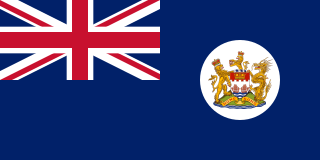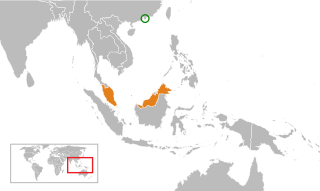 W
WAustralia–Hong Kong relations are distinct to Australia-China relations. Hong Kong has the status of a Special Administrative Region of the People's Republic of China, and maintains its own international relations including those with Australia, as it is empowered to do under the Hong Kong Basic Law. Australia supports the Sino-British Joint Declaration, Hong Kong's mini-constitution, the Basic Law, and in accordance with China's policy of observing "one country, two systems". On the other hand, mainland China has stated that Hong Kong is within China's internal affairs.
 W
WThe British Consulate-General Hong Kong, located at 1 Supreme Court Road, Admiralty, Hong Kong Island, is one of the largest British Consulates-General in the world and is bigger than many British Embassies and High Commissions. It is responsible for maintaining British ties with Hong Kong and Macau.
 W
WBritish Forces Overseas Hong Kong comprised the elements of the British Army, Royal Navy and Royal Air Force stationed in British Hong Kong. The Governor of Hong Kong also assumed the position of the Commander-in-chief of the forces and the Commander British Forces in Hong Kong took charge of the daily deployment of the troops. Much of the British military left prior to the handover of Hong Kong to China in 1997. The present article focuses mainly on the British garrison in Hong Kong in the post Second World War era. For more information concerning the British garrison during the Second World War and earlier, see the Battle of Hong Kong.
 W
WBritish Hong Kong was a colony and dependent territory of the British Empire from 1841 to 1997, apart from a brief period under Japanese occupation from 1941 to 1945. The colonial period began with the occupation of Hong Kong Island in 1841 during the First Opium War. The island was ceded to Great Britain by the Treaty of Nanking, ratified by the Daoguang Emperor in the aftermath of the war of 1842. It was established as a Crown colony in 1843. The colony expanded to include the Kowloon Peninsula in 1860 after the Second Opium War. Hong Kong's territory was further extended in 1898 when the British obtained a 99-year lease of the New Territories.
 W
WBritish National (Overseas), abbreviated BN(O), is a class of British nationality associated with the former colony of Hong Kong. The status was acquired through voluntary registration by individuals with a connection to the territory who had been British Dependent Territories citizens (BDTCs) before the handover to China in 1997. Registration for BN(O) status was limited to the 10-year period preceding the transfer as a transitional arrangement for colonial subjects; current residents cannot newly acquire this nationality.
 W
WThe British National (Overseas) passport, commonly referred to as the BN(O) passport, is a British passport for persons with British National (Overseas) citizenship. BN(O) citizenship was created in 1987 after the enactment of Hong Kong Act 1985. BN(O) citizens are permanent residents of Hong Kong who were British Dependent Territories citizens until 30 June 1997, and chose to remain British by registering for BN(O) citizenship when Hong Kong was under British administration.
 W
WThe British Nationality Selection Scheme, usually known in Hong Kong as simply the British Nationality Selection Scheme (BNSS), was a process whereby the Governor of Hong Kong invited certain classes of people, who were permanent residents of Hong Kong with the right of abode, and who were also considered British nationals under the British Nationality Act 1981, but were not British citizens, to apply to be considered and then be selected to become registered as British citizens under the British Nationality Act 1990.
 W
WBritish nationality law as it pertains to Hong Kong has been unusual ever since Hong Kong became a British colony in 1842. From its beginning as a sparsely populated trading port to today's cosmopolitan international financial centre and world city of over seven million people, the territory has attracted refugees, immigrants and expatriates alike searching for a new life.
 W
WCanada–Hong Kong relations refers to international relations between Canada and the Hong Kong Special Administrative Region of China. Canada and Hong Kong share a legal and political history as parts of the former British Empire, and Canada continues to maintain strong relations with Hong Kong. The Canadian government strongly supports Hong Kong's autonomy under Chinese sovereignty in accordance with the "one country, two systems" principle as provided for in the Sino-British Joint Declaration and the Hong Kong Basic Law, Hong Kong's de facto constitution.
 W
WThe Flag of Hong Kong between 1959 and 1997 was a Blue Ensign with the coat of arms of Hong Kong on a white disk. In Hong Kong, it is also nicknamed the Hong Kong flag (香港旗), British Hong Kong flag (英屬香港旗) or the Dragon and Lion flag (龍獅旗). In 1959, following a grant from the College of Arms and with the consent of Queen Elizabeth II, it was adopted as the flag of British Hong Kong. While the flag lost its official status following the 1 July 1997 transfer of sovereignty over Hong Kong, it resurfaced in the 2010s as a symbol of increased Hong Kong autonomy and protest against Communist Chinese rule in Hong Kong.
 W
WUnder the Basic Law, the Hong Kong is exclusively in charge of its internal affairs and external relations, whilst the People's Republic of China is responsible for its foreign affairs and defence. As a separate customs territory, Hong Kong maintains and develops relations with foreign states and regions, and plays an active role in such international organisations as World Trade Organization (WTO) and the Asia-Pacific Economic Cooperation (APEC) in its own right under the name of Hong Kong, China. Hong Kong participates in 16 projects of United Nations Sustainable Development Goals.
 W
WThe British Consulate-General in Hong Kong is the sole governmental agency currently tasked with offering professional formal English-to-Cantonese name translation services to British officials. No similar services are offered by UK diplomatic missions within the Greater China area. It is a long tradition for the UK government to provide such uniform translation for certain cabinet members and other officials. This practice has its origin in the distasteful translation of the name of the 16th Colonial Governor of Hong Kong, and the UK government keeps this tradition alive even after the transfer of Hong Kong's sovereignty to China in 1997. The translation process is very refined, and there is a set of principles that they observe to avoid taboo, undesirable, or embarrassing translations as well as making the translated names more relatable, approachable, and agreeable to local Hong Kongers.
 W
WHong Kong competed at the Commonwealth and British Empire Games as a British colony or dependent territory from 1934 to 1994. The abbreviation for Hong Kong was HKG. In 1997, the United Kingdom handed Hong Kong over to the People's Republic of China, meaning it could no longer participate.
 W
WThe Hong Kong Independence Party is a non-profit organisation that is part of the Hong Kong independence movement. It was registered in the United Kingdom as a political party from 27 February 2015 to 11 February 2018, and is based in London.
 W
WIndia–Hong Kong relations refers to the bilateral relations between India and Hong Kong. India has a consulate general in Hong Kong.
 W
WHong Kong–Maldives relations refer to foreign relations between Hong Kong and the Maldives.
 W
WHong Kong–Namibia relations refers to the international relations between Hong Kong and Namibia.
 W
WHong Kong–Pakistan relations refers to the bilateral relationship between Hong Kong and Pakistan. Hong Kong and Pakistan were once both British colonies, until Pakistan achieved independence from the United Kingdom in 1947, and the United Kingdom retreated from Hong Kong in 1997.
 W
WBoth Hong Kong and the Republic of Singapore are former British colonies which have maintained trade relations since the 19th century, and have both become important financial centre, maintaining diplomatic missions and trade offices to further their bilateral relations.
 W
WHong Kong–United Kingdom relations refers to international relations between the post-colonial Hong Kong and the United Kingdom. Hong Kong was a British colony from 1841 to 1941 and again from 1945 to 1997 when sovereignty was handed over to China. UK policy towards Hong Kong is underpinned by its substantial commercial interests, and fulfilling obligation as the other signatory of Sino–British Joint Declaration on the future of Hong Kong, in addition to support Hong Kong's mini-constitution, the Basic Law, and in accordance with China's policy of observing "one country, two systems".
 W
WHong Kong–Malaysia relations refers to bilateral diplomatic relations between Hong Kong and Malaysia.
 W
WHong Kong–South Africa relations refers to the current and historical relationship between Hong Kong, a Special Administrative Region (SAR) of the People's Republic of China, and the Republic of South Africa.